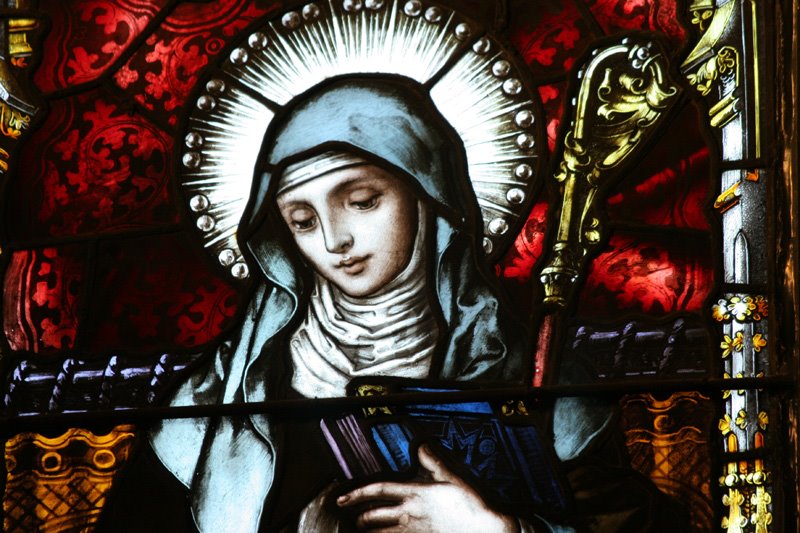 Saint Scholastica (480-542)
Saint Scholastica (480-542)
Image Courtesy: Joy Filled Family
(Franciscan Media) Twins will many times share the same interests and ideas, therefore its no surprise that Scholastica and her twin brother Saint Benedict established religious communities about five miles of one another.
Scholastica consecrated herself to God from her earliest youth writes EWTN she and her twin brother were brought up together, until he left Central Italy for Rome to continue his studies.
Once a year Scholastica visited her brother, as she wasn’t allowed in the Monastery, he would go out with some of his friends to meet her at some small distance in a farmhouse. Benedict and his sister Scholastica would spend these visits in the praises of God and with sharing with one another on matters of their Christian faith.
When Scholastica’s bother was sent to ‘Mount Cassino’ she chose her retreat at Plombariola where she founded and governed a Nunnery–Saint Bertharius who was a Benedictine Abbot of Cassino some 300 yrs after says that Scholastica was instructed in virtue.
According to the ‘Dialogues of Saint Gregory the Great’ (Chapter 33) the twins, spent their final day together. Scholastica sensed her death was close at hand and she begged her brother to stay with her until the next day. Benedict “By no persuasion would agree to that, saying that he may not be any means stay all night outside the Abbey.”
Three days later Benedict was praying in his Monastery (Chapter 34) and saw the soul of his dear sister Scholastica rising towards heaven in the form of a white dove.
“Rejoicing much to see her (Scholastica) great glory, with hymns and praise, he gave thanks to Almighty God and imparted the news of her death to the Monks”
Benedict sent them presently to bring her body to his Abbey to have her buried in that grave which he had provided for himself. By this means it fell out that, as their souls were always one in God while they lived, so their bodies continued together after their death.
Related: For Today’s Most Holy Scripture Readings and More, Visit: -USCCB
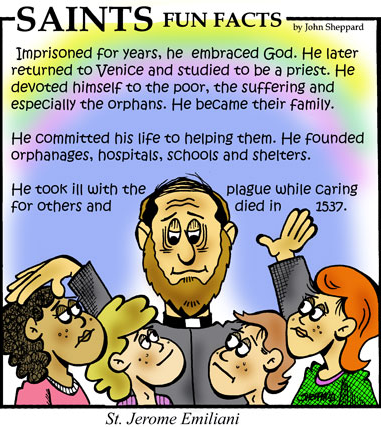 Saint Jerome Emiliani (1481-1537)
Saint Jerome Emiliani (1481-1537)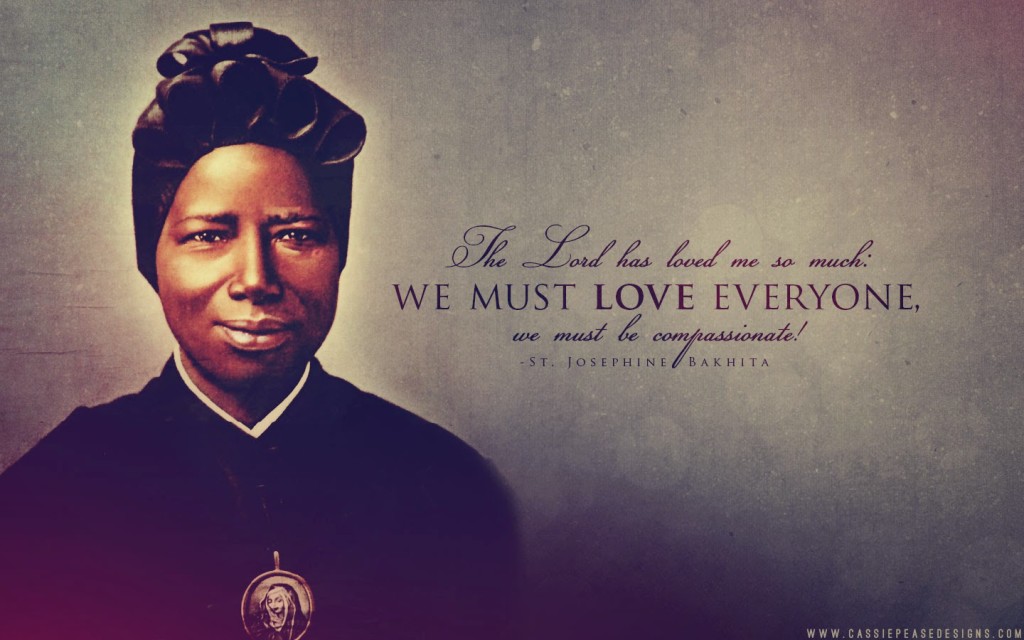 Saint Mother Josephine Bakhita (1869-1947)
Saint Mother Josephine Bakhita (1869-1947)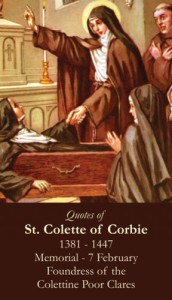
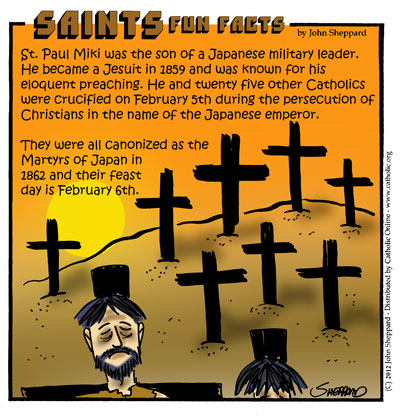 Saint Paul Miki & Companions –Image Courtesy:
Saint Paul Miki & Companions –Image Courtesy: 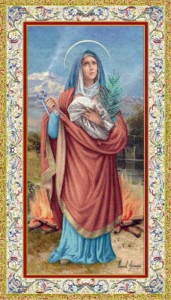
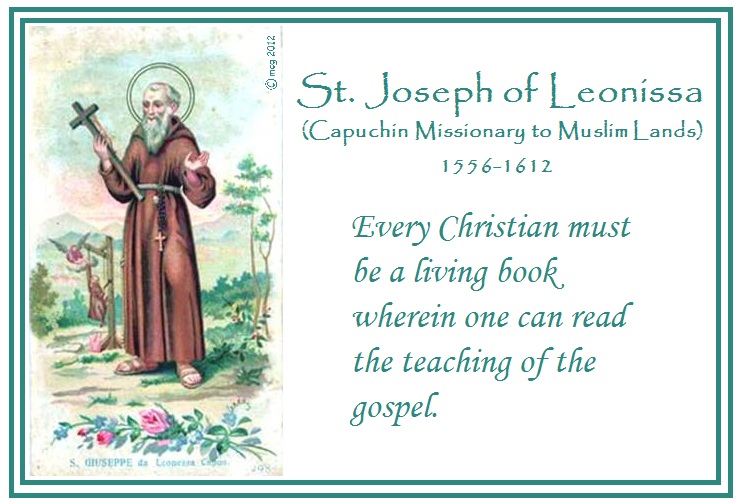 Saint Joseph of Leonissa
Saint Joseph of Leonissa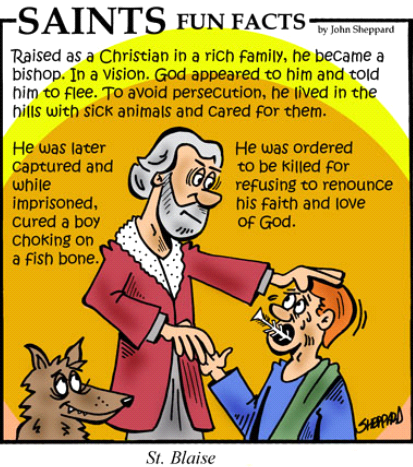 Patron Saint of Veterinarian’s & Throat Illnesses
Patron Saint of Veterinarian’s & Throat Illnesses
